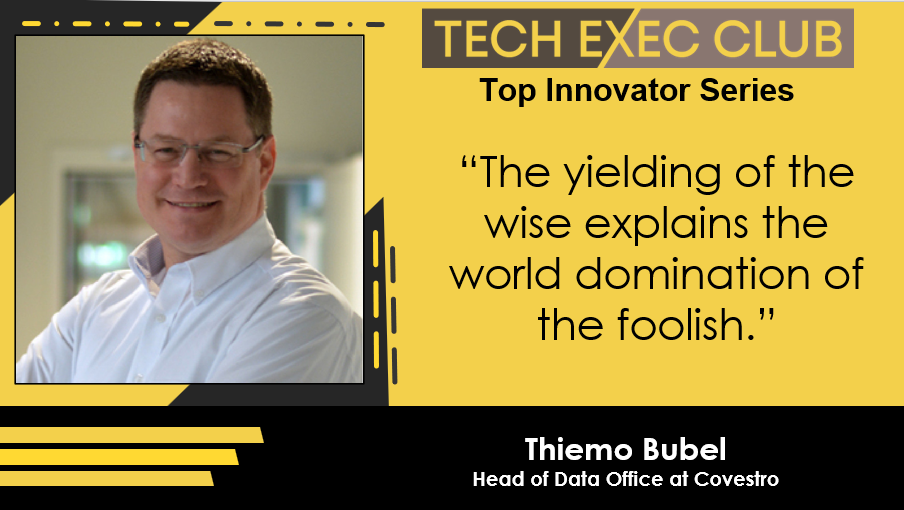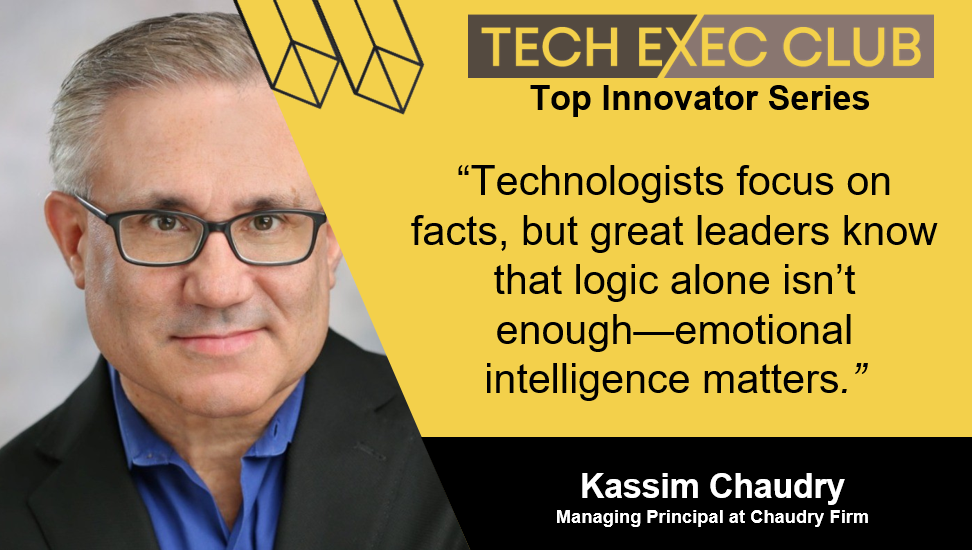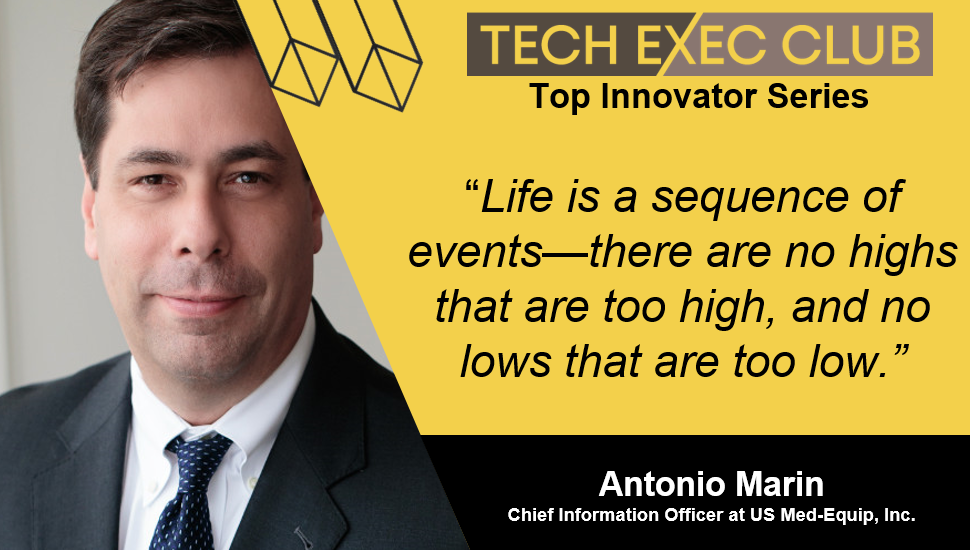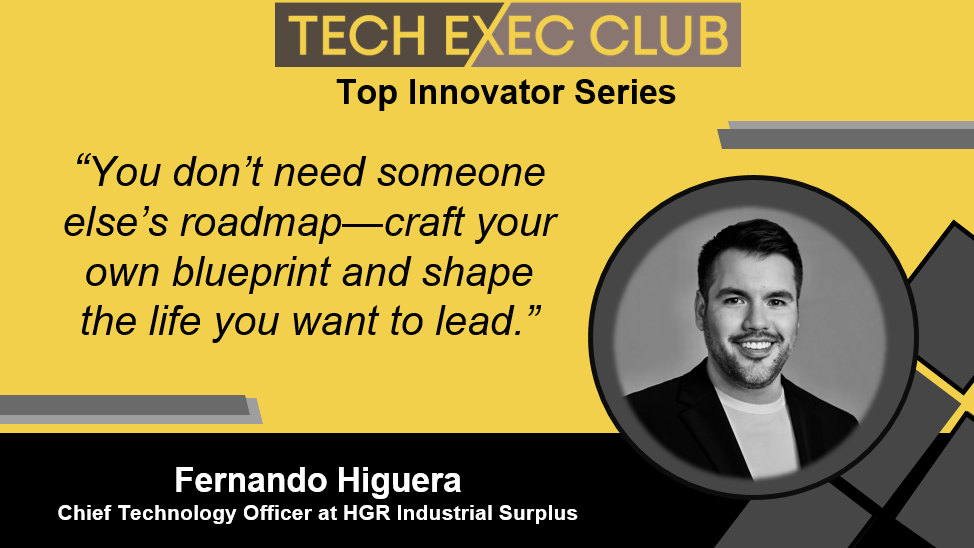In a candid exploration of technology leadership, Thiemo Bubel, a seasoned Tech Executive, shares his unique approach to overcoming imposter syndrome and achieving success. His insights provide a valuable framework for any tech leader aiming to foster a culture of learning and adaptability in high-pressure environments. This interview delves into Thiemo’s strategies, challenges, and the philosophical underpinnings that guide his professional journey. As we uncover the layers of his career, Thiemo reflects on his personal growth and offers practical advice for emerging leaders in the tech industry.
Navigating the Tech Terrain: Thiemo Bubel on Leadership, Learning, and the Imposter Syndrome
In an industry where rapid change is the only constant, Thiemo Bubel, a visionary Tech Executive, stands out for his unorthodox leadership and personal development approach. His career journey transcends traditional boundaries, offering a fresh perspective on handling the pressures and challenges inherent in tech leadership roles.
Thiemo’s leadership philosophy is rooted deeply in his beginnings in product management, where he cultivated a perpetual learner’s mindset. Despite his high-profile roles and apparent success, Thiemo confesses to a persistent feeling of knowing nothing—a sentiment that powers his insatiable drive to understand and innovate. His humility and relentless quest for knowledge have positioned him as a leader comfortable with uncertainty, making him a beacon for those grappling with the pervasive imposter syndrome in tech industries.
The core of Thiemo’s strategy is his commitment to data-driven decision-making and inclusive team dynamics. He emphasizes the importance of involving diverse team perspectives in problem-solving processes, which enhances decision quality and fosters a collaborative work environment. This approach is efficient in an industry often criticized for its top-down management styles, which can stifle innovation and personal growth.
Thiemo candidly addresses the challenges of maintaining his philosophy in a competitive field. He describes the transition many faces when moving from technical roles to leadership positions—a shift that often comes without adequate preparation for managing people and complex projects. His narrative reveals a common pitfall: newly promoted leaders are expected to have all the answers, perpetuating a cycle of stress and inadequate leadership.
Moreover, Thiemo’s personal experiences add a layer of authenticity to his advice. He parallels his childhood—marked by frequent relocations due to his father’s military career—and his professional life, where adaptability and resilience have become his greatest assets. These experiences have shaped his ability to navigate change and uncertainty, not just survive it.
As part of his leadership practice, Thiemo prioritizes creating environments where team members can admit their knowledge gaps without fear of judgment. This openness combats the imposter syndrome and empowers his teams to seek knowledge and propose innovative solutions fearlessly. He argues that acknowledging one’s limitations can be a powerful catalyst for growth and learning, transforming potential weaknesses into strengths.
In a reflective moment, Thiemo shares wisdom from a mentor that influences his leadership approach: “The yielding of the wise explains the world domination of the foolish.” This adage underscores the importance of humility and self-awareness in leadership, starkly contrasting the aggressive, know-it-all archetype that dominates traditional corporate cultures.
Looking ahead, Thiemo is focused on refining his ability to manage and utilize conflict productively. He aims to harness the creative tension that arises in professional settings to fuel innovation rather than letting it ferment into dysfunction. This next step in his leadership development is not just about maintaining control but about orchestrating the energy of his teams to foster a constructive and creative work environment.
Thiemo Bubel’s journey is a compelling reminder that authentic leadership in technology is not about wielding authority but about fostering an environment of continuous learning and adaptation. His insights are not just strategies but lessons on the power of vulnerability and the importance of every team member’s voice in sculpting the future of technology.
Empathetic Leadership and Imposter Syndrome
Thiemo Bubel’s approach to leadership is deeply intertwined with his experience of imposter syndrome, a common challenge among high-achieving professionals. Instead of succumbing to the pressures of always having to “know it all,” Thiemo champions a leadership style that acknowledges and embraces uncertainty. By admitting his limitations, he creates a spacewhere learning is prioritized, and vulnerability is seen as a strength. This empathetic approach alleviates the weight of imposter syndrome and encourages a more collaborative and supportive work environment.
Data-Driven Decision Making in Product Management
Having a background in product management, Thiemo emphasizes the importance of data-driven decision-making. He describes how starting from a position of “knowing nothing” and relying on empirical data and market feedback allows for more informed and effective strategies. This methodology ensures that assumptions are constantly tested and adjusted based on real-world inputs, thus enhancing the product’s relevance and user satisfaction. This rigorous decision-making approach is a cornerstone of Thiemo’s leadership success.
Challenges of Transitioning from Tech Roles to Leadership
Thiemo reflects on the difficulties tech professionals face when promoted to leadership positions without adequate preparation. He critiques the traditional belief that technical expertise automatically equates to good leadership. By sharing his experiences and struggles in learning to lead, Thiemo provides insights into how leaders can better navigate this transition, emphasizing the need for training and support in developing people management skills and strategic thinking.
Adaptability and Personal Growth
Drawing from his childhood experiences of frequent relocations, Thiemo highlights adaptability as a crucial skill for personal and professional growth. He discusses how these early life challenges equipped him with the resilience and flexibility needed to thrive in dynamic business environments. Thiemo’s story inspires tech leaders to leverage personal experiences to overcome professional challenges and view adaptability as a strategic advantage.
Creating a Culture of Openness and Continuous Learning
Lastly, Thiemo advocates creating a workplace culture that values openness and continuous learning. He details strategies for fostering an environment where team members feel safe to express doubts and share ideas without fear of retribution. This culture supports innovation and builds a more vital, cohesive team dynamic. Thiemo’s focus on learning and reflection as key leadership traits underscores his commitment to developing successful projects and successful people.
Embracing a New Leadership Paradigm
1. Acknowledge Uncertainty: Leaders are encouraged to adopt Thiemo Bubel’s approach by openly admitting when they do not have all the answers. This fosters a learning environment where curiosity and continuous improvement are valued over mere expertise.
2. Invest in Data-Driven Decision-Making: Thiemo’s experience in product management demonstrates that data and market feedback are foundational tools for decision-making. This method ensures that decisions are based on evidence rather than assumptions.
3. Prioritize People Management Skills: For those transitioning from technical to leadership positions, focus on developing solid people management and strategic thinking skills. Seek out training programs or mentorship opportunities to aid in this development.
4. Cultivate Adaptability: Like Thiemo, use personal and professional experiences to enhance your adaptability. Embrace change as an opportunity for growth and encourage your team to do the same.
5. Create an Open and Reflective Culture: Establish a culture that mirrors Thiemo’s vision of openness and reflective practice. Encourage team members to share their thoughts and ideas without fear, promoting innovation and collective success.
6. Learn from Mistakes: Implement a culture where mistakes are seen as valuable learning opportunities. Encourage team members to share these experiences openly and learn from them collectively.
7. Communicate Effectively at All Levels: Develop the skill to communicate complex ideas simply and effectively across different levels of an organization, bridging gaps and fostering understanding.
Celebrating Thiemo Bubel’s Leadership Journey
Thiemo Bubel’s insights remind us that leadership is not just about directing others but fostering an environment where everyone can thrive and contribute. His journey from a product manager to a Tech Executive illustrates a path marked by continuous learning, empathetic leadership, and a fearless approach to facing the unknown. Thiemo’s willingness to admit his limitations and learn from them humanizes him and elevates him as a role model for current and aspiring tech leaders. His story is a powerful testament to the impact that thoughtful and inclusive leadership can have on individuals and organizations. Through his experiences, Thiemo Bubel encourages us all to embrace vulnerability, seek knowledge, and cultivate resilience in our quest to lead effectively and compassionately in the ever-evolving landscape of technology.
Thiemo Bubel is the Head of the Data Office at Covestro, where he spearheads data-driven initiatives to enhance operational efficiency and innovation. He also serves as an advisor and mentor in the tech industry, leveraging his extensive experience to guide emerging leaders through the complexities of technology and data management.






